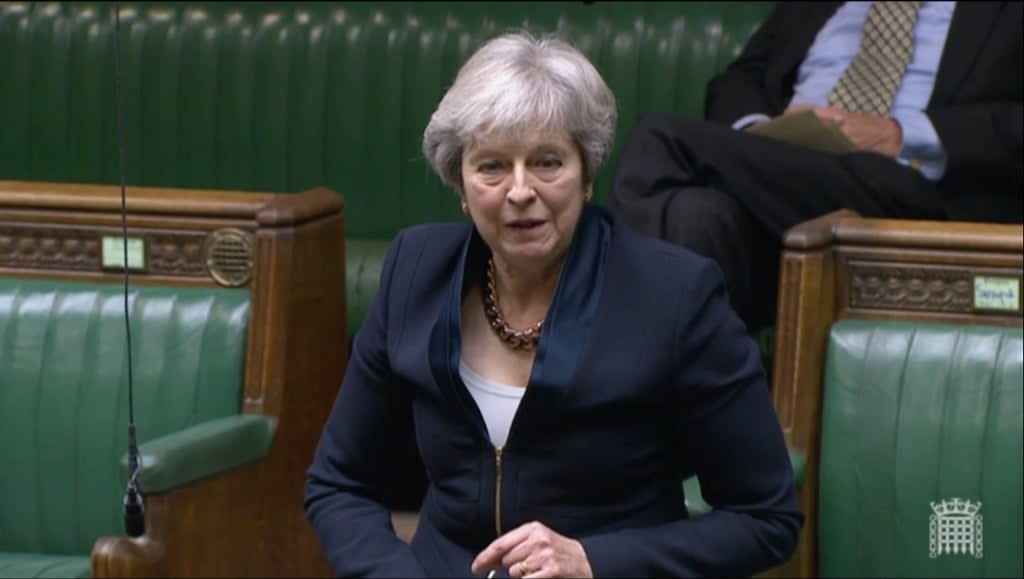Theresa May breaks silence on Downing Street parties: ‘Nobody is above the law’

- Oops!Something went wrong.Please try again later.
- Oops!Something went wrong.Please try again later.
Theresa May has broken her silence over Downing Street lockdown parties and said she is "angry" at the revelations.
In a letter shared with her local constituency newspaper Boris Johnson's predecessor declared that "nobody is above the law".
The comments mark her first intervention over the so-called "Partygate" scandal, which she had notably avoided commenting on so far.
"I have said previously that it is vital that those who set the rules, follow the rules. Nobody is above the law," the Maidenhead Advertiser reported Ms May as having written.
"This is important for ensuring the necessary degree of trust between the public and Government.
"Like so many, I was angry to hear stories of those in Number 10, who are responsible for setting the coronavirus rules, not properly following the rules."
The letter was sent before the Metropolitan Police launched its own inquiry into the alleged parties, referred to the investigation by top civil servant Sue Gray.
The former prime minister said that "if there is evidence of deliberate or premeditated wrongdoing, I expect full accountability to follow".
She added: "All those working at the heart of Government should conduct themselves with the highest of standards which befits the work they do, and this applies as much to those working in Number 10 as to other parts of Government."
The ex-prime minister has been a persistent critic of Mr Johnson's government on issues including planning reform and cuts to international aid.
During Ms May's tenure as prime minister Mr Johnson served as foreign secretary.
But he resigned from her Cabinet over over what he said was her policy of enacting a "semi-Brexit" that would leave the UK with the "status of a colony".

